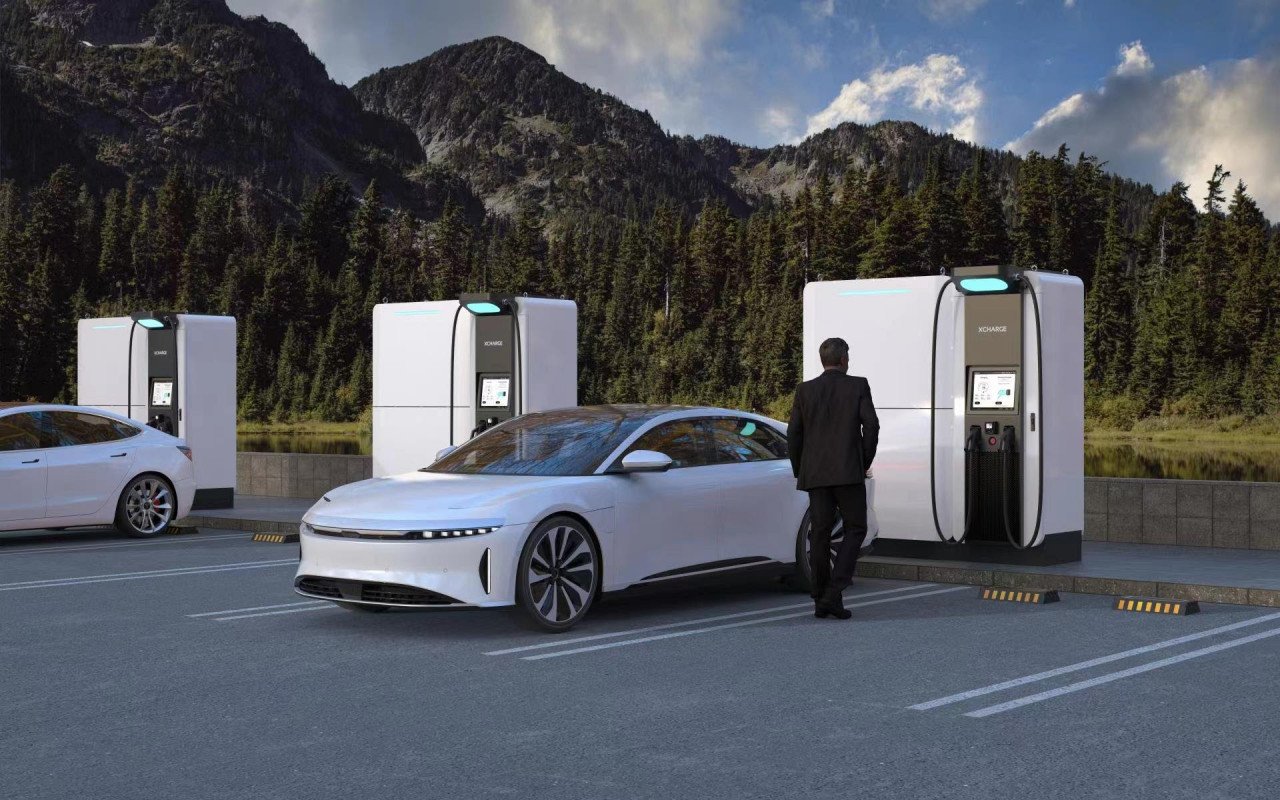XCharge’s energy storage EV chargers to be arrive in Hamburg
EV charging solutions startup XCharge developed Net Zero Series (NZS) energy storage charger are set to arrive in Hamburg before Christmas, and will be shipped later to final customers in Europe.
The innovative product integrates EV chargers with energy storage solutions, which aims to save the construction costs, enhance grid stabilities, and provide continuous power supply during a temporary black out.
With 233kWh battery capacity (extendable to 466 kWh), featuring up to 210kW of power for parallel charging of up to two vehicles in less than 30 mins, NZS offers an innovative retractable cable system, 4G communications, new modular upgrade and smart energy management system to push forward energy reliability and resiliency in Europe, the company claims.
The new charger stands out by its battery capacity, since energy storage is at the forefront critical energy discussions in Europe. Under the circumstance of rising energy prices, European Commission calls for a series of actions to stabilize energy supply and focus on digitalizing energy system including smart energy management system.
In order to meet growing demand of electricity without overloading the network, XCharge is ready to provide solutions to address the particular issue by deploying NZS across Europe.
The charger allows charge point operators (CPOs) to feed themselves during off-peak hours, and be prepared from high consumption and grid saturation. And during peak hours, cars can be charged from battery storage instead from the grid or can be charged from a combination of both the battery and the grid.
Though balancing the power with energy storage system is the focus for NZS, as XCharge's other DC chargers, charging speed and end-user experience is still the core of the design, according to the company. NZS' Power Reserve mode easily mitigates the risks by restoring certain amount of energy in battery packs to prevent emergencies, it adds.
Electric vehicles are now increasingly able to charge at high power levels and require higher output power, resulting in longer charging time as the pain point. To highlight, NZS is capable to charge a single connected vehicles at 210kw in about 20 minutes from 10 percent to 80 percent of the SOC. Plus, it allows simultaneous charging with two vehicles connected.
RELATED: Paired Power unveils new solar canopy for EV charging without grid interconnection delay





















